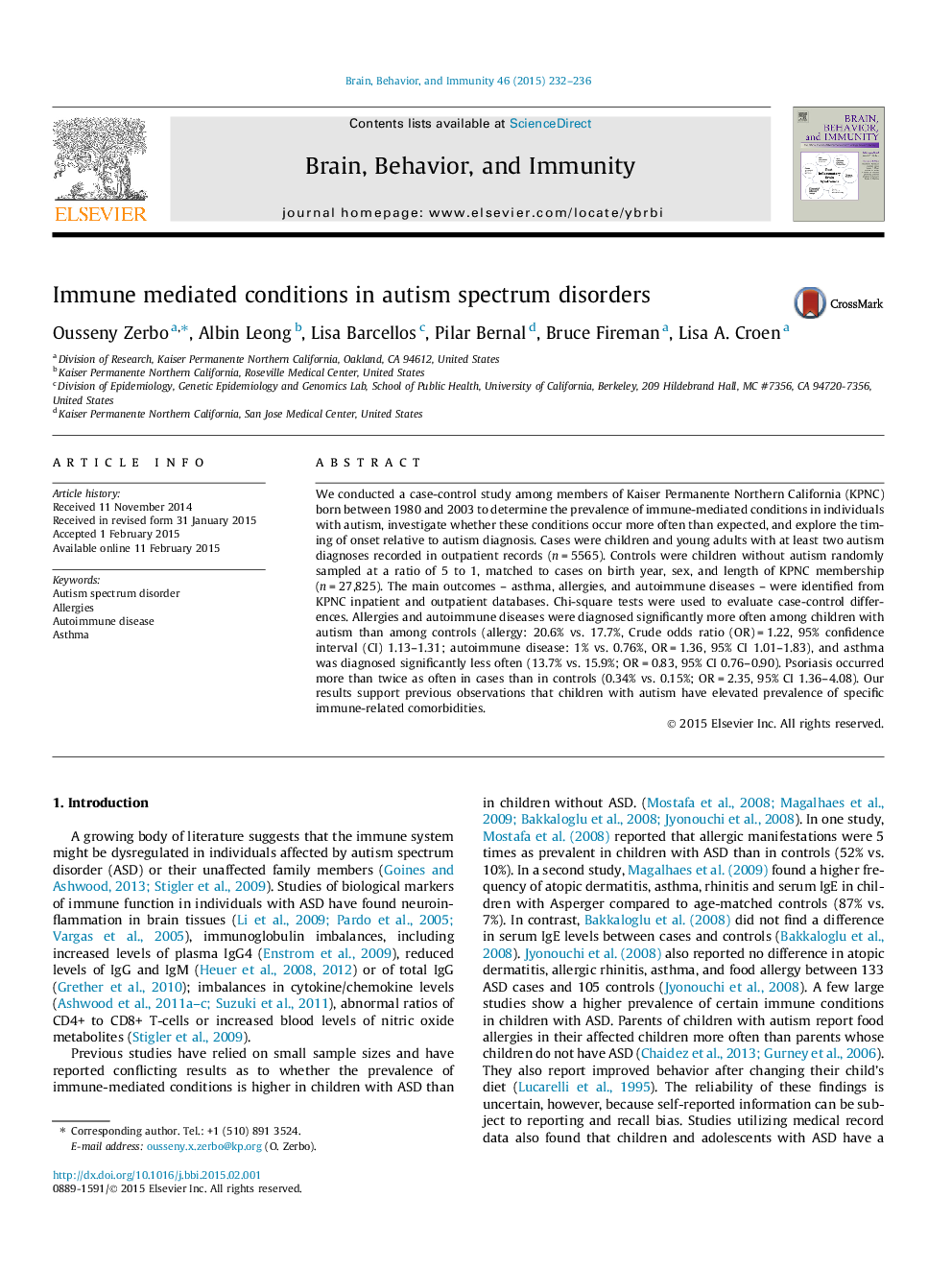| Article ID | Journal | Published Year | Pages | File Type |
|---|---|---|---|---|
| 7281255 | Brain, Behavior, and Immunity | 2015 | 5 Pages |
Abstract
We conducted a case-control study among members of Kaiser Permanente Northern California (KPNC) born between 1980 and 2003 to determine the prevalence of immune-mediated conditions in individuals with autism, investigate whether these conditions occur more often than expected, and explore the timing of onset relative to autism diagnosis. Cases were children and young adults with at least two autism diagnoses recorded in outpatient records (n = 5565). Controls were children without autism randomly sampled at a ratio of 5 to 1, matched to cases on birth year, sex, and length of KPNC membership (n = 27,825). The main outcomes - asthma, allergies, and autoimmune diseases - were identified from KPNC inpatient and outpatient databases. Chi-square tests were used to evaluate case-control differences. Allergies and autoimmune diseases were diagnosed significantly more often among children with autism than among controls (allergy: 20.6% vs. 17.7%, Crude odds ratio (OR) = 1.22, 95% confidence interval (CI) 1.13-1.31; autoimmune disease: 1% vs. 0.76%, OR = 1.36, 95% CI 1.01-1.83), and asthma was diagnosed significantly less often (13.7% vs. 15.9%; OR = 0.83, 95% CI 0.76-0.90). Psoriasis occurred more than twice as often in cases than in controls (0.34% vs. 0.15%; OR = 2.35, 95% CI 1.36-4.08). Our results support previous observations that children with autism have elevated prevalence of specific immune-related comorbidities.
Related Topics
Life Sciences
Immunology and Microbiology
Immunology
Authors
Ousseny Zerbo, Albin Leong, Lisa Barcellos, Pilar Bernal, Bruce Fireman, Lisa A. Croen,
